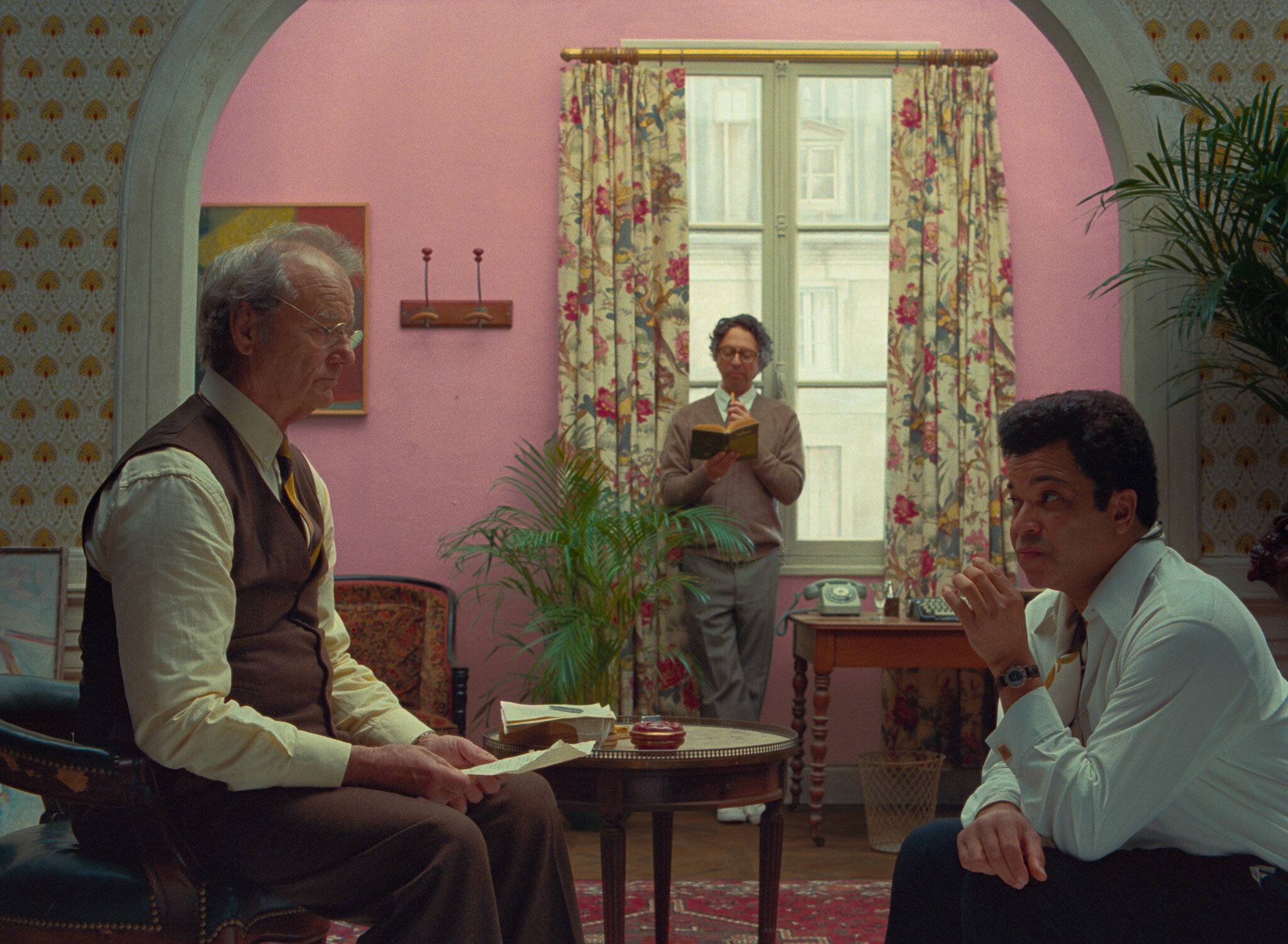There’s some comfort in a Wes Anderson movie for sure. The stakes are usually pretty low, the story trends toward whimsical and wry, and his visual style is unlike any of his contemporaries, and almost always captivates the eye or anyone who prefers symmetric aesthetics. The French Dispatch isn’t going to win over any of his detractors, but for someone constantly on Wes Anderson’s movie fence, I’m happy to report on the positive side with this one, a lovely homage to small newspapers of yestermillenium.
The French Dispatch is the French based section of a Kansas newspaper, cataloguing the town of Ennui, France. Anderson’s movie takes place on the day of the last publication. Editor Arthur Howitzer (Bill Murray) stipulates that 3 famous pieces from the paper’s past be published in this final publication. JKL Berensen’s (Tilda Swinton) “The Concrete Masterpiece,” about an incarcerated painter (Benicio del Toro), his muse (Lea Seydoux), and an art dealer (Adrien Brody). Lucinda Kremetz’s (Frances McDormand) “Revisions to a Manifesto” about 2 student protesters (Timothee Chalamet and Lyna Khoudri), and Roebuck Wright’s (Jeffrey Wright) “The Private Dining Room of the Police Commissioner”, about a police chef (Stephen Park), the Comissaire (Mathieu Almaric) and a kidnapping.
Vignette movies get pretty overrated for me pretty quickly, mostly because you’re relying on all mini stories to be good for the movie to be a runaway success, and generally only 1-2 of them are, and the 3rd drags the movie down. Wes Anderson eschews some of that worry with a really clever framing device: the final publication of a newspaper. This helps set boundaries around the stories, framing them as a piece of the overall puzzle, separate but equal. Each story is thematically independent of one another, releasing them to be their own thing. This means an onslaught of the best working actors today get a chance to cook with that Wes Anderson wit, while the talented director makes more indelible images and stylistic choices that will certainly pop on his already sterling resume (the best of which might be a server moving up an entire house’s flight of stairs, totally him).
But big question: are the stories any good. In general, like most vignette movies, 2 out of 3 of them are, the first and the last (plus the beginning and end are delightful too, so I guess 3 for 4?). The middle Chalamet/McDormand/Khoudri 3 hander has probably the best line of the movie and some great material, but in general the tale doesn’t quite gel together like the other stories. The first, the jail painter saga, is so wonderfully ludicrous, only Anderson could have drummed it up, with Anderson vets Seydoux, Swinton, and Brody just hamming it up and having a ball, playing 2nd fiddle to a wonderfully chained but unchained Benicio Del Toro. But the best of the bunch in my opinion is the last, about the police chef. Anderson in 30 minutes or so manages to craft a caper with thrills, loopy silliness, and some emotional punch thanks to Jeffrey Wright. Plus who doesn’t love Ed Norton in a wispy French moustache?
The French Dispatch is for the Wes Anderstans. His loving homage to newspapers like the New Yorker doubles as an homage of the director himself, showing everything that makes his fans so excited when a new Wes Anderson movie comes out. Plus I think he gave Owen Wilson a new idea for a show: “Bicycle Tours with Owen”. I’d watch that for hours.

